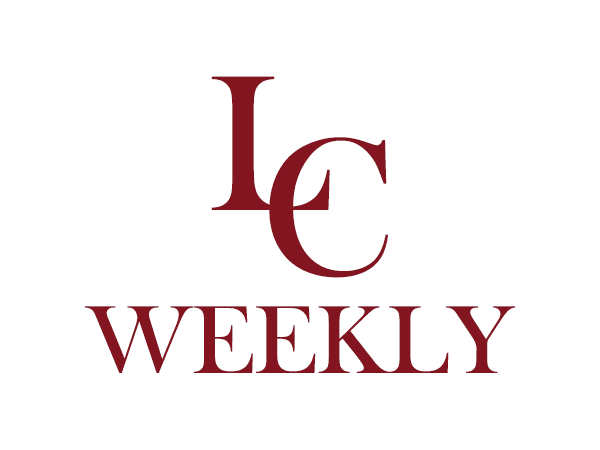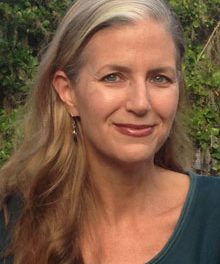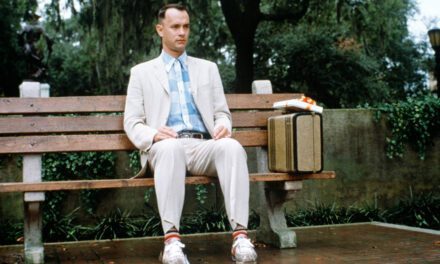“Disgusting.” “Sickening.” “Bottom Feeders.” “Monsters.”
That’s just a brief sampling of the epithets folks were hurling on Facebook this morning. Some were talking about their FB friends. Others, directly to their FB friends. It occurred to me that Facebook has forever altered the definition of “friend.”
On a happier note, Facebook also served me up a video interview with social psychologist Jonathan Haidt, one of my go-to guys whenever I need help understanding This American Moment. The interview – entitled “Can a divided America heal?” – is over a year old, but I believe it’s even more relevant now than it was then. We’re still in the “moment,” and more so.
Haidt’s interviewer, British Ted-talker Chris Anderson, begins by stating the obvious – that things “feel different now” between Republicans and Democrats. Haidt agrees that while political rivals always had a tendency to dislike each other, they now strongly dislike each other. One senses that if Haidt weren’t such a moderate gentleman, he’d have probably used the word “hate.”
(By the way, “hate” is not how you pronounce “Haidt.” His name rhymes with “light,” and he sheds a great deal.)
Haidt compares America’s current left/right divide to an unhealthy marriage that’s in serious danger of divorce. Why? The first line of this article holds a clue.
It’s about disgust, he says. “Anger is one thing. Disgust is something else entirely.”
Haidt cites research by psychologist John Gottman, focusing on couples in marriage counseling. Apparently, if even one member of the couple has a look of contempt on his/her face – a look of disgust – it’s a strong indicator that the couple will end up divorcing. Anger doesn’t predict divorce, says the research. In fact, anger handled properly can be healthy and healing. Disgust? That tends to be a bridge too far. A place you don’t come back from.
“Disgust is indelible ink,” says Haidt.
So how did we get here? How did so many people become disgusted? Haidt starts at the beginning – with our tribal nature – quoting an ancient Bedouin proverb he calls a basic aspect of human cognition: I against my brother, I and my brother against our cousin, I, my brother and our cousin against the neighbors, all of us against the foreigner.
According to Haidt, this tribalism is baked in – it’s how we survive. Like it or not, we’re built for tribal warfare. The good news is that we’ve found all sorts of safe ways to “play war” in the modern era: sports, games, business, and, yes, politics. And for a long time, we were engaged in “expanding the tribe” within our own borders, which might be the best humanity can hope for – that everyone in a particular country feels like part of the same tribe.
I say “might be,” because that’s still an open question. In fact, according to Haidt, that question – and where you come down on it – is now the defining aspect of our Great Divide, and not just in the United States.
The old left-right model split mainly along the lines of Labor vs. Capital, he says. That was the old division. The new division – the new tribalism – is between the parochials and the anti-parochials. Those who care more about being part of a town, a nation, a rooted “place” vs. those who don’t like borders or nation states, who think of themselves as “global citizens.” He calls the first group “drawbridge uppers” and the second group “drawbridge downers.”
Think of it like this: If these two groups were songs, the first might be John Mellencamp’s “Small Town,” while the second would be John Lennon’s “Imagine.” Which song you most align with is deeply imbedded in your social psychology.
Here at home, this division has been inflamed by our recent immigration crisis, as it has been throughout Europe over the past few years. The result of Europe’s migrant crisis has been a rise of right-leaning populism that the Brookings Institution calls “the most important political development of the 21st Century.”
“Immigration and diversity can do a lot of good,” says Jonathan Haidt. “They can bring innovation, grow the economy, etc. But what globalists don’t see is that they also cut social capital and trust.”
According to Haidt’s research, the more people feel “the same,” the more trust they have. And the more trust you have, the more “progressive” you can be. This is why Scandinavian countries have worked so well. They’re small and homogeneous. Their citizens understand each other, and trust each other, so they are willing and happy to care for each other. They live peacefully amongst themselves, with a sense that the world is a harmonious place, so they naturally develop a “drawbridge down!” attitude . . . which leads to immigration and diversity.
Ironically, this is when the trouble often begins, as Europe is learning. Even in Scandinavia, the once-dominant center-left parties are currently in decline, and nationalist parties with nativist tendencies are growing. The drawbridge is creeping back up.
We should take heed here in the US, where those Americans who most desire a progressive government and generous welfare state are often the least appreciative of the importance of a “common culture” – a foundation on which to build the social capital and trust necessary to such a project. They wax poetic about diversity and crack jokes about their more traditional brethren (‘Merica, etc.), assigning them all sorts of “disgusting” motives and intentions, isms and phobias. This failure of moral vision simply drives those traditionalists to hunker down in their tribe, feeling ever more misunderstood – ever more “disgusted” – and growing ever more resistant to the possibilities of progressivism.
And it is a failure of moral vision. According to Haidt, who has studied these issues extensively, for the parochials, it’s not really about race, it’s about culture. “People aren’t racist as long as they don’t feel their culture and moral order are being threatened,” he says. “If you emphasize our cultural similarities instead of our differences, it turns out race doesn’t matter much.”
But this hasn’t happened in a long time. In our well-meaning enthusiasm for diversity, we’ve dropped the ball on emphasizing cultural similarities, which may help explain the recent re-ignition of racism. And the decline of trust. And the dangerous escalation of mutual disgust.
In his book The Righteous Mind, Haidt explains that the right and the left live in two different moral matrices. Two different “consensual hallucinations.” It’s almost like living in two different video games . . . with a drawbridge between them.
“Each side sees different threats to the country,” he says. “And what I’ve found, from being in the middle, and trying to understand both sides, is that both sides are right! There are a lot of threats to this country, and most people are constitutionally incapable of seeing them all.”
Translation? The right and the left need each other. Their current proximity to divorce is, according to Haidt, an “existential threat” to this country. How can we save this marriage?
Haidt says we need a new kind of empathy. “Empathy is a hot topic in psychology and a very popular word on the left,” he says. “Especially empathy for our preferred groups of victims. And that’s easy to do, because you get points for that.” What we really need, he says, is empathy that’s hard. The kind you don’t get points for. The kind that forces you to enter the other guy’s video game – or at least imagine what it’s like in there with some degree of accuracy.
But how, when everybody’s blinded by disgust?
“The opposite of disgust is love,” he says. “You have to fight it with love. And for that, you need personal relationships. You can be disgusted by a group, but then you meet a particular person from that group and typically discover he’s lovely.” Personal relationships transcend tribal prejudices and can even defuse them.
I thought about this while watching Chuck Todd interview George Will on MSNBC the other night, about the death of Will’s good friend Charles Krauthammer. The conversation between these two men of rival tribes was full of such gentle humanity, such genuine warmth, it momentarily restored my faith in our tribe.
God help me, I still love our American tribe.
Margaret Evans is the editor of Lowcountry Weekly. (Read more of her Rants & Raves or visit her blog at www.memargaret.com)








